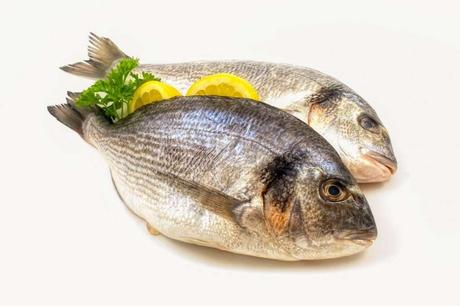
For at least 25 years I have been saying that 90% of the time frozen is a better choice. The reason is that most “fresh” fish people eat, whether from the grocery store or in a restaurant, is several days old. The quality of fish deteriorates quickly and unless it is eaten within a couple of days of the catch, there is a noticeable difference in texture and taste. I used to fish the Pacific a lot and unless it was to be eaten within a day or two, I always froze what I caught. Well prepared, fresh frozen, fish is virtually indistinguishable from fish eaten the day it is caught. This assertion gets challenged by those who insist that unfrozen fish, even if it is several days old, tastes better than fish that has been frozen. I knew someone who gave away anything he caught unless he was going to eat it that day because he felt that even refrigerating it overnight ruined it. Setting aside discussion of taste, and for reasons unrelated to quality, frozen fish is getting some new advocates.
Yesterday I was sent a link to an article on why we should usually eat frozen, rather than fresh fish. The same piece has been published this week in The New York Times, The Malaysian Insider, and reprinted on websites around the world. These articles are all based on collaborated research done by scientists in Sweden, Nova Scotia, and Oregon. In summary, it is the idea of food miles and mode of transport that has been around for years, this time applied to fish. The arguments about food miles and type of transport is one that may never be resolved. I have written a few times about that issue and always get comments from people on both sides of the argument. One person said “there is no real evidence that the energy used by one method of transporting our food versus another makes any difference on carbon emissions”. Another said “anyone who believes that flying apples from South America to Chicago uses the same or less energy as trucking apples from Washington state to Chicago is delusional”. The truth is somewhere in between and really gets hard to know when you start to account for how much energy is required to actually manufacture a plane, as opposed to a cargo ship, energy used in maintenance, type of fuel consumed by the transport, etc.
The one big thing this fresh or frozen debate ignores is the effect of industrial scale fishing on the fish stocks of our oceans. For example, Bluefin Tuna and Red Rockfish are in real danger of being wiped out by our appetite for seafood. Sustainable fishing methods are necessary and fish farming has to be made healthier for the environment and consumers, if the world is to be able to continue eating fish as we do now.
